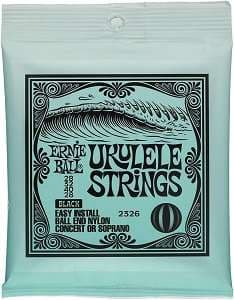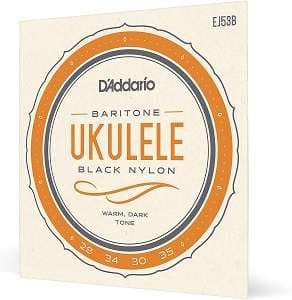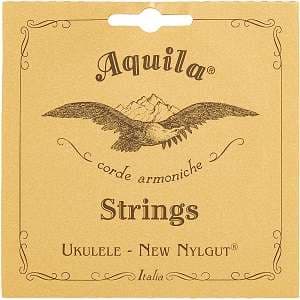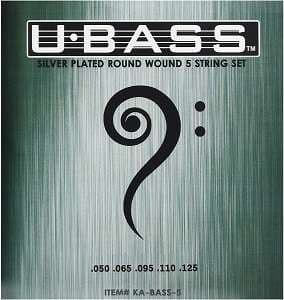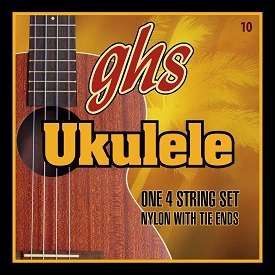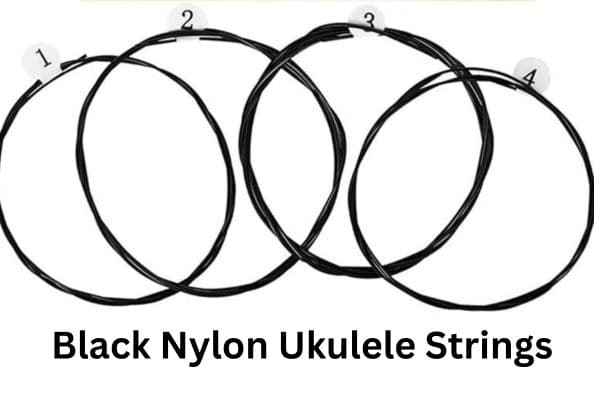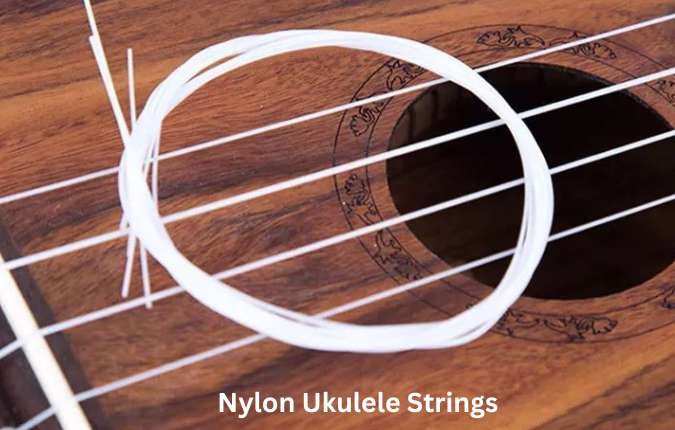
Almost all ukulele players understand that strings have a role in playing a ukulele instrument. Ukulele players should be sure that they need the best nylon ukulele strings, depending on what they play.
Most ukulele models consider nylon strings more consistent and capable of producing great sounds in combination with components.
In this nylon string for ukulele review, players will learn about some of the best nylon ukulele strings that have been getting on the market recently!
Top 5 Best Nylon Ukulele String
1. Ernie Ball Ukulele Nylon Strings
The Ernie Ball 2326 is one of the best products that you can use. Considering a warm, rich tone with a more driven attack, you can select these items.
They come from 100% nylon monofilament in transparent and black nylon set. The Ernie Ball construction provides superior tuning stability, with much easier installation than conventional string types. In addition, they are simple to use and will turn your playing dream into comfort.
The Ernie Ball is recognized as one of the best models, so the world-famous uke players utilize them in their instruments.
2. D’Addario EJ53B Baritone String Set
The D’Addario has brought this EJ53B string set made in the USA to the baritone ukulele market.
The brand includes a silver-plated copper wound on nylon for the third and fourth strings, which is appreciated by the first and second strings made from black precision-modified nylon. Besides, this set suits the standard DGBE tuning.
The D’Addario has carefully prepared every black string for an unparalleled tone, with a majestic feel and a warm, sustainable acoustic melody.
These models may require some time to stretch and show their possibility like other same-quality products. Notably, it will sound somewhat like a full-blown acoustic guitar, with lows, clear highs, and low resonance.
3. Aquila Ukulele Strings Nylon (AQ-16)
If you’ve bought such a ukulele that has come with crappy strings by chance, you can change the strings with the Aquila AQ-16. Indeed, these will turn your cheap uke into a great instrument.
The AQ-16 Low G string should fit most instruments with little to no nut slot adjustment. A regular high g string has a diameter of 0.0273 inches, while the bottom g of this wound contains 0.0275 inches. When changing your strings to lower ones, it’s too crucial.
The brand has introduced it for a beautiful playing feel and a sweet tone similar to real gut strings. Additionally, its composite component can absorb less moisture to ensure tuning stability.
The company designed for a beautiful playing feel and a sweet tone like real gut ones. Also, its composite material can absorb less moisture to guarantee tuning stability.
4. Kala Wound UBASS Strings
Are you thinking of taking your bass ukulele sound to the next level? Why aren’t you replacing the strings on your 4-string bass ukulele with the Kala Metal Round Wound?
These items bring a nylon core with silver-plated windings, providing your instrument with an appropriate melody and a warm yet powerful sound.
These feel very nearer to the round wound of a typical bass guitar, a little easier on the fingers. Additionally, they do not require any particular strategy and are straightforward enough to play.
While Kala has introduced this set for the Kala U-Bus, you can use it on the same models from separate brands.
5. GHS Nylon Ukulele Strings
You’re exploring a string set that offers a classic nylon feel with an uttered but sweet melody. So, here is the GHS String Set for you.
These models, designed for all musicians, from seasoned to new players, contain a slightly lower tension for precise strumming and picking. Further, these classic-style items will help you express the rich features of your instrument.
This GHS set incorporates clear nylon for standard ukes. These provide a comfy feel with sustainable bright melodies when playing.
Nylon Manufacturing
String manufacturing companies use many types of nylon polymers to make string. Consequently, ukulele sounds can vary from company to company.
Extrusion is the least expensive string manufacturing process in which nylon monofilaments are manufactured by pushing molten polymer through holes of a precise diameter.
Nylon performance and durability
Moisture can’t impact nylon, but you bounce back for temperature changes. Additionally, all nylon items tend to stretch when new and require extra time to settle.
It’s better to give new models more time to expand before adapting to the tone or fine-tuning your instrument. For the warmer melody of traditional gut strings, the polymer formula is applied to create some nylon items to imitate the rounder.
One of these polymers is D’Addario’s Nyltech, constructed to deliver the warmth of traditional gut models while offering punch and tuning stability. The diameter and shape of clear nylon models are not always accurate because of the inherent properties of nylon and the processes used to build it.
A string might contain variations along its length that are too small to observe. To handle this, string producers have developed modified items that start as clear nylon and are grounded to precise shapes and sizes.
Consequently, strings maintain close tolerances for dimension along their length, enhancing tone and harmony. However, the grinding process leaves a textured surface on the string separate from the crisp, clean feel of clean nylon.
Black Nylon
Black nylon is generally associated with a lighter, warmer tone, less clarity, and less articulation. These models can be the best nylon ukulele strings for beginners or players with less hand strength.
You experiment a little to get elegant strings for your instrument. Even the top-quality items are not too pricey.
If you try different brands of string sets designed for your uke type, you should be able to shrink the brands and strings you might use.
Tension
String tension refers to the amount of pressure a string exerts when pitched.
Low tension lets the string move excessively and be “floppy.” Notes become easier to fret using low-tension strings.
Higher tension vests extra pressure on the soundboard, making it more crisp but harder to press down on the strings.
Many things impact the tension, primarily thickness, and scale length. The material the string is made from and the thickness also support density. It comes down to mass. In reality, more mass in the string refers to higher tension.
You should pick your tension based on how you want your ukulele to experience and sound. The lighter the strings, the quieter and brighter they sound. Heavy models have a thicker tone and are louder.
Considering feel, tension affects how much you push the strings at the frets and how easy it is to stay out of tune.
Since the lighter string produces more vibration, you should set up a higher action to get used to the wide ringing arc. On the contrary, if you put heavy strings on a ukulele, the buzz is due to lower action, and you’ll observe that the increase in string tension clears the frets better, leading to less buzz.
Why Should You Alter Your Ukulele Strings?
If you have avoided replacing the stock strings on your instrument, you should consider doing so. If you need help changing your strings, here is a helpful text.
We have observed that the stock strings on most low-cost instruments contain a few downsides that affect tone and handling.
Usually, the producers install less pricey models. If you place strings on 100,000 ukuleles a year, your cost per string becomes reasonable.
It may be common for instruments to ship with budget-quality items that don’t display the instrument’s sound. These stock strings are usually in warehouses at ukulele stores for months before you accept them.
String set-up might frequently be accomplished fast in factories by unskilled workers, so the strings are overwrapped, and sometimes they don’t get locked correctly. It can result in tuning issues and a ceaselessly slipping ukulele.
Final note
Every instrument shows a response differently to an equal string. What may produce a good sound in one uke may not create a similar sound in another.
Once you’ve established your basic sound-independent string preferences, such as tension and feel, you can tailor the sound of your ukulele based on the strings you use.
Hopefully, our text will help you buy new strings, and you’ll have a great time playing your ukulele using them.
Read also:
